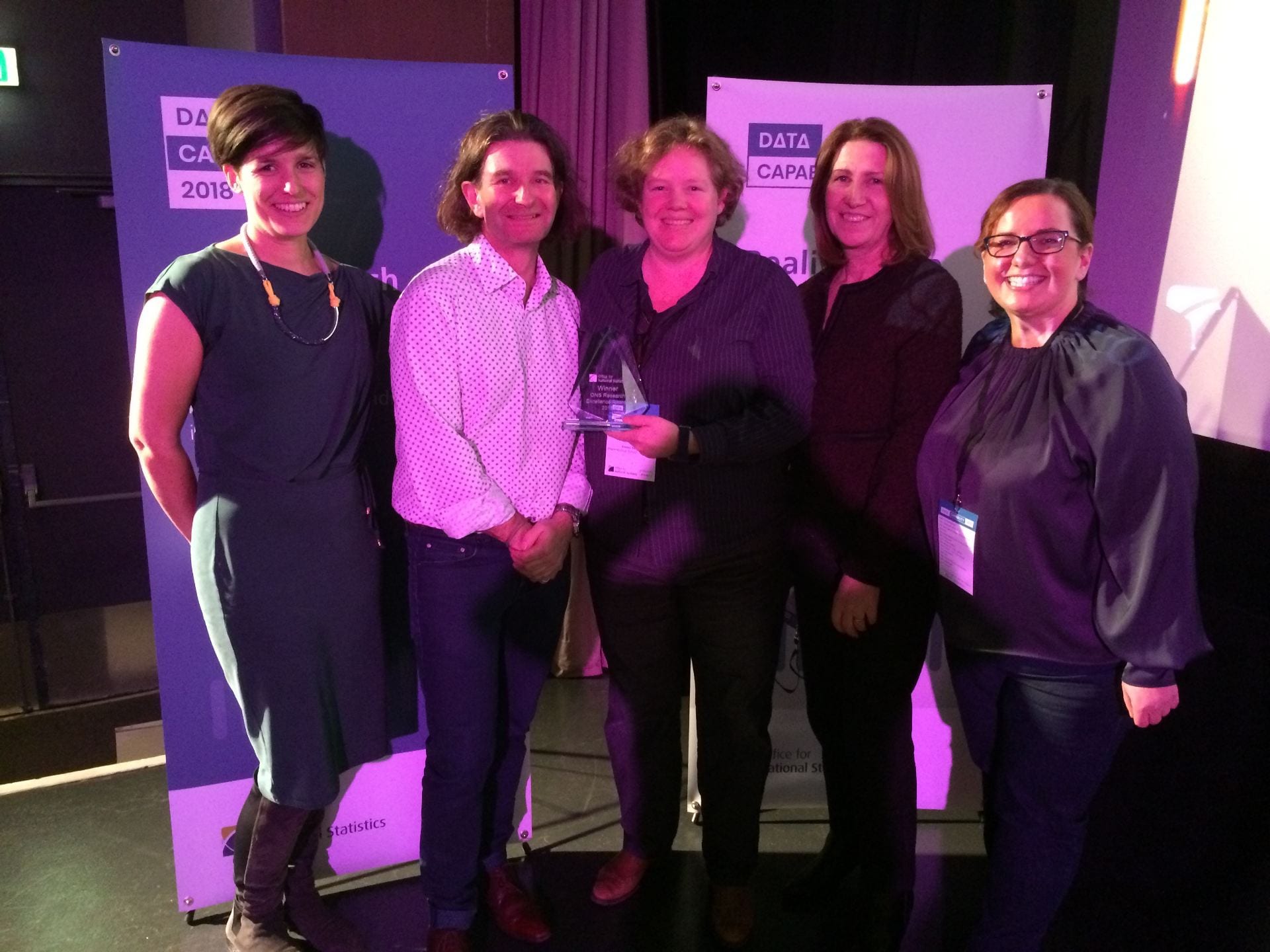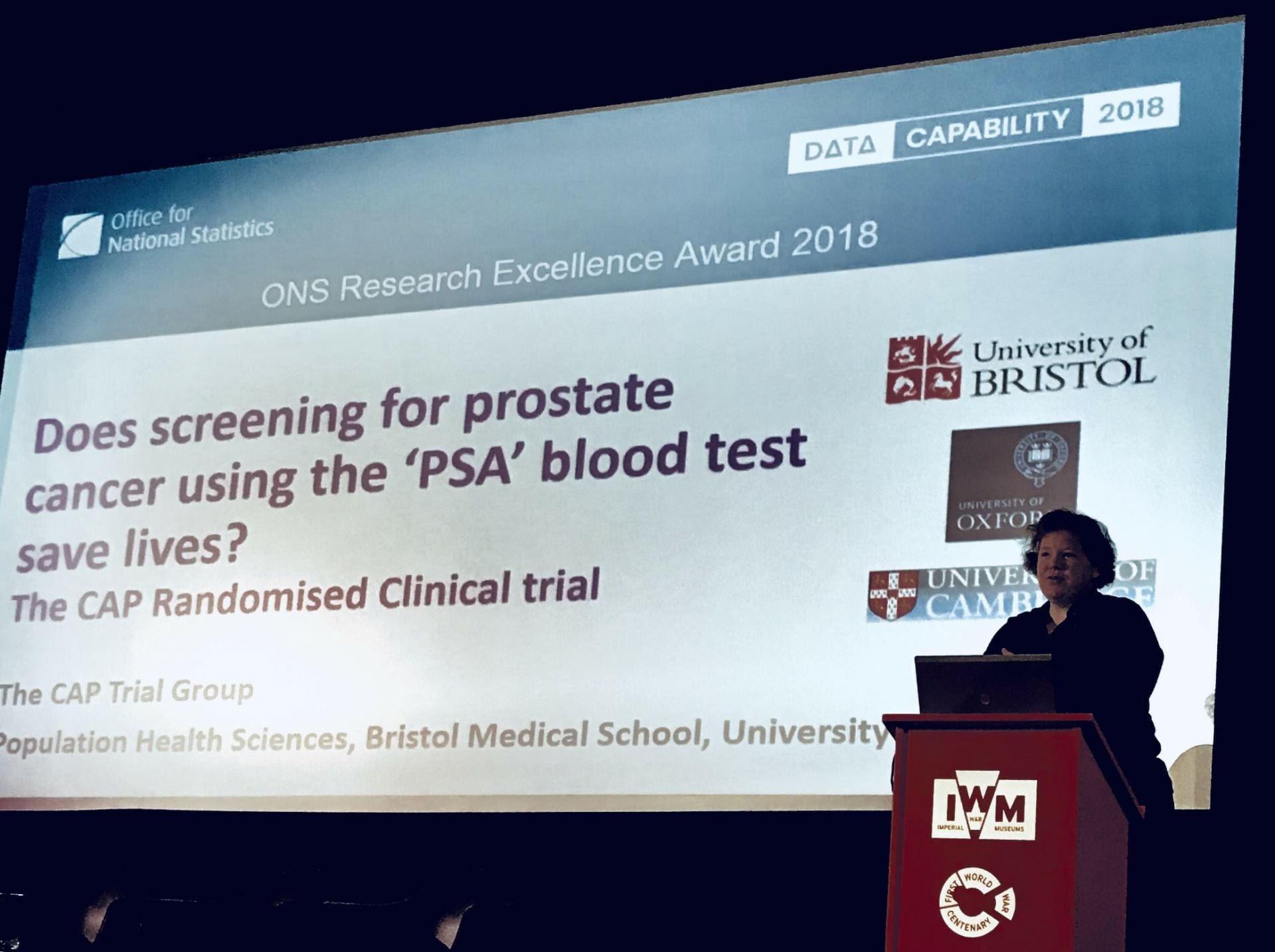October 2022
We used a cost-utility analysis with an individual-based simulation model. The model was calibrated to data from the 10-year follow-up of the Cluster Randomised Trial of PSA Testing for Prostate Cancer (CAP) and treatment effects were modelled using data from the Prostate Testing for Cancer and Treatment (ProtecT) trial. The model found that all screening strategies increased costs compared with no screening, with the majority also increasing quality-adjusted life-years. At willingness-to-pay thresholds of £20,000 or £30,000 per quality-adjusted life-year gained, a once-off screening at age 50 years was optimal, although this was sensitive to the utility estimates used. An additional follow-up of CAP to 15 years may reduce uncertainty about the cost effectiveness of the screening strategies.
January 2022
An editorial has been written by Professor Freddie Hamdy called Prostate-Specific Antigen Testing for Prostate Cancer Screening—Is the Message Getting Through?
You can read the editorial, published in JAMA Onclology, here.
February 2021
Update from Senior Research Associate Edna Keeney

Edna is a Senior Research Associate working with CAP data to inform a cost-effectiveness analysis of different prostate cancer screening strategies. Her work so far on this project has involved carrying out a Delphi consensus process to identify the prostate cancer screening strategies that international researchers, clinicians, and decision-makers felt important to consider in a cost-effectiveness model. She has also completed a systematic review to assess the evidence base on cost-effectiveness of recent innovations in prostate cancer diagnosis including new biomarkers and more accurate biopsy methods.
She is currently adapting a previously published screening natural history model, the prostata model, to a UK setting. The prostata model was developed by Mark Clements and colleagues in Sweden based on a prostate cancer screening model from the Fred Hutchinson Cancer Research Center (FHCRC) in the US. The model, which has now been calibrated to a UK population using CAP data, will be used to compare the cost-effectiveness of novel prostate cancer screening strategies to a no screening approach.
Further work will explore structural uncertainty in the model by comparing it to another recently developed prostate cancer screening model by the ScHARR group at the University of Sheffield. Methods such as the discrepancy approach will be used to quantify uncertainty due to inadequacies in model structure and reduce structural error. The expected value of partially perfect information (EVPPI) will also be calculated to determine the model inputs which have the highest influence on which screening strategy is preferred and assess the value of collecting further information on these inputs through trials or observational studies.
The final model will use 15-year follow-up data from CAP to assess the value of different screening strategies.
October 2020
Our Post 10 Year Results Newsletter is now available to view online.
December 2018

We are pleased to announce that the CAP (Cluster Randomised Trial of PSA Testing for Prostate Cancer) trial won the ONS Research Excellence Award 2018.
The award recognises excellence by a team or individual in undertaking innovative high-quality research that provides an evidence base for sound decisions supporting the formulation of effective government policies, the management of public service delivery, and the direction of economic and commercial activities. The focus is on outstanding and ground-breaking use, analysis and presentation of data, rather than just doing the job well. We were awarded the Office for National Statistics panel award, the panel highlighted the impact CAP has already had; the diverse dissemination of these results; the collaborative working practices; and the innovative methodology developed.

Dr Emma Turner presented our work Does screening for prostate cancer using the ‘PSA’ blood test save lives? The CAP Randomised Trial at the ONS Data Capability 2018 meeting where she was presented with the award. You can view the full presentation here and read the accompanying script here.
We would like to thank all our collaborators: ONS; NHS Digital; Public Health England; Welsh Cancer Intelligence and Surveillance Unit; and the Secure Anonymised Information Linkage (SAIL) databank in Swansea. We would also like to thank our funders for their continued support: Cancer Research UK; NHS National Institute for Health Research; and the Department of Health.
This work uses data provided by patients and collected by the NHS as part of their care and support #datasaveslives


